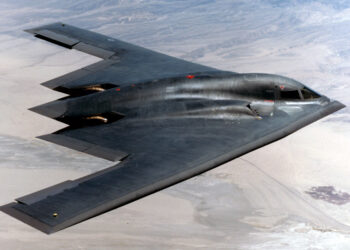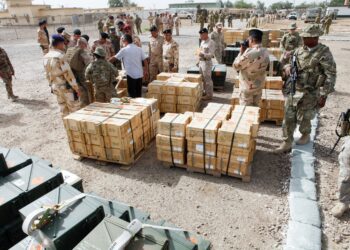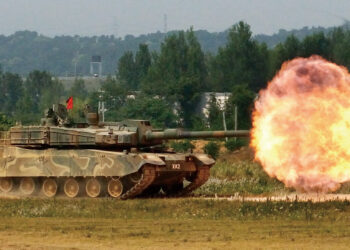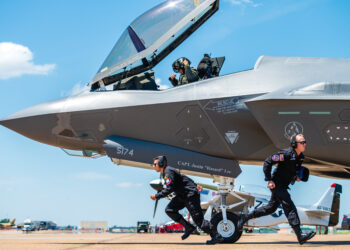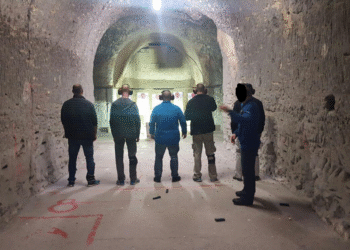In the ever-evolving landscape of global defense partnerships, Turkey’s precision manufacturing sector has once again made a bold and strategic move. This time, it is not about conventional arms exports or UAV deals. It is about high-tech metallurgical innovation meeting long-range missile ambition. On the radar now is a groundbreaking collaboration between Turkey’s Repkon Makina ve Kalıp, a leader in flow-forming and metalforming technologies, and Brazil’s MANSUP-ER missile program.
Let us unpack why this matters, not just for Turkey and Brazil, but for the future of global defense supply chains.
A Deeper Look: What is MANSUP-ER?
Brazil’s MANSUP (Míssil Antinavio Nacional de Superfície) program has been in development for years under the oversight of the Brazilian Navy. The “ER” version, standing for Extended Range, marks a significant step forward: a long-range, precision-guided surface-to-surface missile designed to secure Brazil’s extensive maritime territory.
This missile is not just about range. It represents Brazil’s drive to reduce foreign dependence on critical defense technologies while enhancing indigenous manufacturing capabilities. But like many ambitious missile projects, it needs precise engineering at its core. That is where Repkon enters the equation.

Turkey’s Flow-Forming Edge: The Repkon Technology
Flow-forming is one of the most advanced and niche metallurgical manufacturing methods in the world. It allows extremely thin-walled, high-strength metal structures, like missile casings, to be produced with near-zero tolerance levels. The structural integrity and weight savings achieved are critical for high-speed, long-range missile systems.
Repkon’s proprietary flow-forming machines are already utilized by several NATO and allied countries for artillery shells, rocket bodies, and aerospace components. The integration of this technology into Brazil’s MANSUP-ER program shows something bigger: Turkey is becoming a global provider of enabling technologies, not just finished weapon systems.
It is not the missile that is being exported. It is the backbone of its production process.
Strategic Depth: Why Brazil Chose Turkey
The Brazil–Turkey axis in defense is not common, at least not historically. However, this cooperation shows how defense diplomacy is shifting. Brazil needed a partner with proven metalforming capabilities, but also one open to bilateral collaboration, not dictated by ITAR or similar Western export restrictions. Repkon fit the profile.
This move:
- Helps Brazil localize missile production
- Keeps technology transfer outside traditional Western control spheres
- Offers Turkey a new foothold in Latin America’s expanding defense market
And there is another important dimension: Turkey’s defense industry is nimble, competitive, and politically flexible, unlike many of the legacy defense players.
The Emerging Role of Dual-Use Technology
One of the most significant features of this deal is its dual-use potential. The same flow-forming tech can be adapted for:
- Aerospace components
- Satellite casing structures
- Space launch vehicle tanks
- Civilian pressure vessels
This kind of technology transfer, centered on production methods rather than weapons themselves, creates long-term industrial cooperation beyond defense. It brings Repkon closer to the space and aviation industries, particularly as Brazil ramps up its own satellite and orbital ambitions.
From a geopolitical standpoint, this is smart power, and it is coming not from government-to-government arms deals, but from precision engineering companies.
Turkey’s Expanding Defense Influence
Repkon’s move fits into a broader Turkish pattern: instead of trying to match the giants like Lockheed or Thales in finished systems, Turkish firms are carving out leadership in specialized systems, drones, loitering munitions, naval electronics, and now, missile manufacturing infrastructure.
By focusing on modular, export-compliant technologies, Turkish firms avoid the entanglements of U.S. or EU restrictions while becoming indispensable to clients seeking partial autonomy in defense production.
In the case of Repkon, it is not about producing weapons with a Turkish flag. It is about enabling others to produce them, with or without one.
Business Signals: What This Means for the Industry
If you are in the defense tech sector, especially in aerospace metallurgy or missile guidance systems, this move sends a clear signal. Turkey is no longer just a buyer or seller. It is a builder. A builder of capacity, infrastructure, and trust.
Brazil’s choice of Repkon is a market signal. It suggests that:
- Non-Western nations are increasingly shopping for high-quality, non-aligned tech
- Precision manufacturing will be as strategic as missile ranges in the coming decade
- Turkish private-sector defense firms can outcompete legacy contractors in speed, flexibility, and pricing
This is not just a one-time contract. It is a template for future Turkish defense industry engagements, especially with nations that want know-how, not just hardware.
Sources:
- Newsweek (2025). “Repkon to support Brazilian Navy’s long-range missile project”
- The Sun (2025). “Flow-forming technology and global defense trends”





